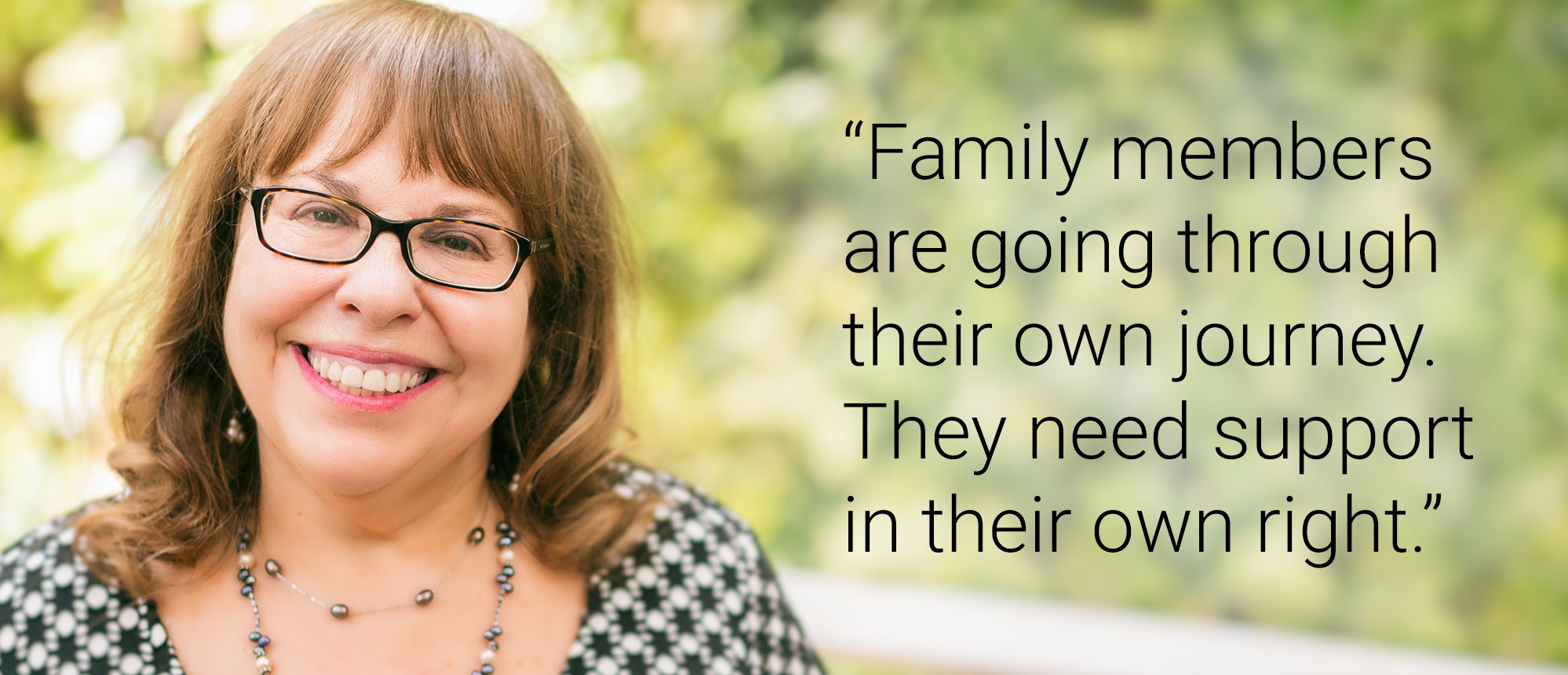- Future Students
- Current Students
- Faculty
- Staff
- Alumni
- Others
Approaching mental health from a family perspective

For Sabrina Baker, the death of her father ultimately carried a profound influence both personally and professionally.
Baker, who is currently an instructor in the University of Guelph-Humber’s Family & Community Social Services program, was only 27 when her father passed away from cancer. Because Baker is a registered social worker and her mother and siblings are likewise caring, the family was able to honour their loved one’s last wish to die at home.
Yet, the family members who were grieving their father and spouse’s diagnosis and adjusting to their new reality were not offered any professional emotional support. While it didn’t necessarily occur to Baker at the time, the experience set her on a path toward looking at the residual effects of a traumatic health issue on family and loved ones.
“In the whole time we encountered the health system, none of the doctors or even the social workers asked my family how we were doing nor did they offer us any support, information or tangible help,” Baker recalled recently. “There was one exception. We got some brutal news about my dad’s deteriorating condition in a public area of the hospital and I remember someone handing me a Kleenex as tears poured down my face. It was a cleaning person. In that moment, this simple act of kindness went a long way towards supporting me.
“I always tell this story to my students. Sometimes, it’s a basic act of humanity that gets someone through a difficult situation.”
Years later, Baker is still dedicated to family-centred care, with a specific focus on helping families support a loved one who has mental-health and or addiction issues. She focuses on helping the family to be an ally in their loved one’s recovery as well as ensuring that the family has help as they go through their own parallel journey of recovery.
That’s why Baker was thrilled to take part in the new interactive multimedia project The Family Guide to Mental Health Recovery, which includes the feature-length documentary “The Journey Home” that includes expert interview footage with Baker alongside a range of other prominent voices, including Canadian Prime Minster Justin Trudeau.
Baker once worked as a Social Worker specializing in family work at the Centre for Addiction and Mental Health (CAMH) in the First-Episode Psychosis program. Psychosis is used to describe conditions that affect the mind when there has been some loss of contact with reality. Early detection is crucial, and often the family are the first to recognize symptoms.
“What we know is that if you intervene early, the prognosis is much better. Delays in treatment may lead to a slower and less complete recovery,” she said.
One problem Baker found was a dearth of resources to help family members or supportive peers navigate the issue. That’s part of what motivated her to write her guide with her colleague Lisa Martens, Promoting Recovery From First Episode Psychosis: A Guide for Families.
“When you meet people in the beginning stages, they’re just barely able to keep their head above water,” she said. “At later stages, the family realizes this is going to be a whole journey. It’s not a sprint, it’s a marathon. And it takes a while for the family to realize they may need help in their own right.”
Family-centred care is challenging but rewarding work, Baker said, so she’s hopeful UofGH students will continue to take an interest in this area. Even just discussing issues like this can be helpful.
“Stigma is one of the biggest obstacles to the treatment of mental illness and or addictions. Families sometimes isolate themselves from their natural support systems because they don’t want to tell people about their loved one and their own mental and physical health can be compromised. Initiatives whereby people with lived experience tell their story go a long way in breaking down stigma.
“I loved these efforts of people coming out and telling their story in the documentary because it reminds other families that they are not alone and there is light and hope for them as they travel on their own journey to recovery.”
Learn more about Family and Community Social Services at the University of Guelph-Humber.

